Imagine you’ve found the right property after months of going to open homes. You’re thrilled, but don’t let your emotions get the best of you. When your heart is set on a property, it’s still important that you gather the information you need to make an informed decision. A property report will help you offer the right price for your potential home or property investment, or set the right price if you are looking to sell.
What Is A Property Report?
A property report gives you an estimate of the property’s value. Property reports can help home buyers, sellers and investors make informed decisions.What information does a property report contain?
A property report has information about the property’s features, history and suburb. The information might vary depending on the source and the type of property. In general, you can find these sections:Property Details
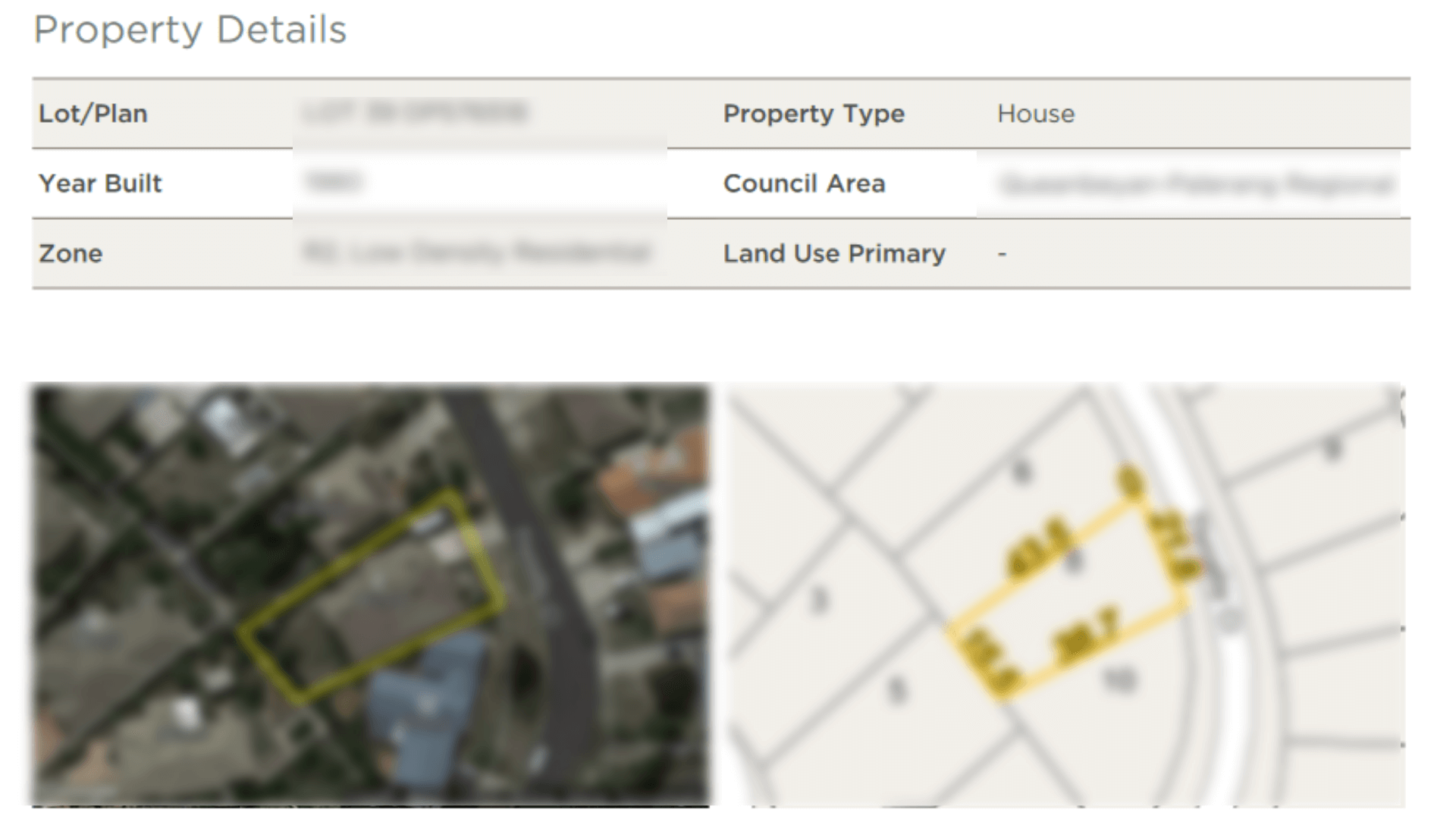
This includes the address, property type, year built, number of bedrooms and bathrooms, floor plan, size in square metres, and pictures of the location.
Estimated Value Of The Property

This section contains an estimate of the property value based on recent comparable sales in the area. Along with the estimate, you’ll find the estimated value range (within which the actual price is expected to fall) and the estimated value confidence.
How Do I Read The Estimated Value Confidence?
The confidence tells you the likelihood that the estimated value of your property is accurate, based on the amount of data the property report’s source has on the property and similar properties in the area.
An estimated value with ‘High’ confidence is more reliable than that with a ‘Medium’ or ‘Low’ confidence.
Can I Rely On The Estimated Value?
It may be a surprise, but we recommend that you don’t rely on the value estimate alone because there are many things that can cause the estimate to be significantly different from the actual value:- A property report ignores any renovations since the last sale.
- If the market is rising quickly, then the estimated value may not keep up.
- The property is unique.
- The property hasn’t sold in a long time (5-10 years).
- There aren’t many recent comparable sales.
Property Activity Summary
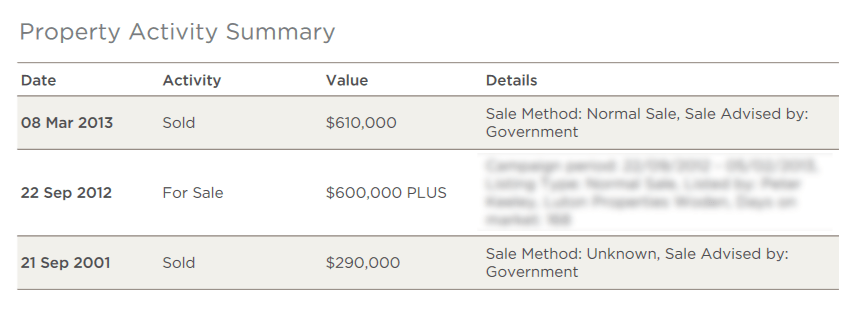
This is the previous sales history of the property, including when and how much it sold for and the sale method.
If you’re looking to buy, then this section can be really useful! You may see that the owner has tried to sell the home several times in the past, which could indicate that something is wrong with the property or that they have unrealistic price expectations.Comparable Sales
Most property reports contain the recently sold properties and properties still for sale in the area you want to buy. It’s always better to use comparable sales combined with your own research to value a property.Recently Sold Properties
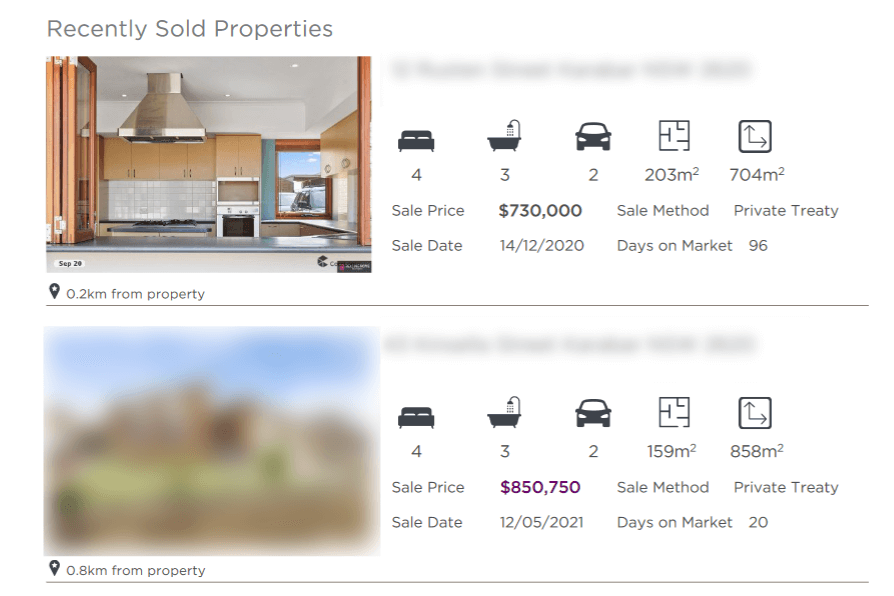
These are the properties sold recently in the area you’re looking to buy. You’ll find information such as the sale price, sale method, sale date and the number of days the property has been on the market.
In addition, this section of the property report includes a picture of the property, the size in square metres, number of bedrooms and bathrooms, and the number of parking spaces. Focus on the recently sold properties that are most similar to your property. These comparable properties can help you estimate your property value closely. You can search for the address of these properties in Google to find old real-estate listings, which help you compare them to the property you’re considering.Properties For Sale
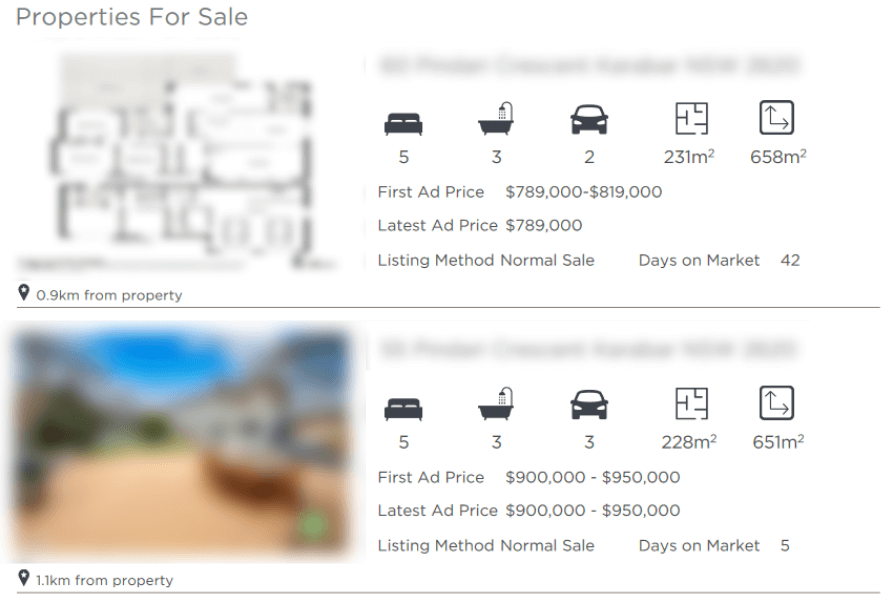
Similar to the recently sold properties section, this part of the property report contains information on the properties currently listed for sale in the area.
You’ll find the first advertised price and the latest price of such properties. Again, looking at prices for properties similar to yours can help you get a better estimate of a fair price for your property price.Local School Details
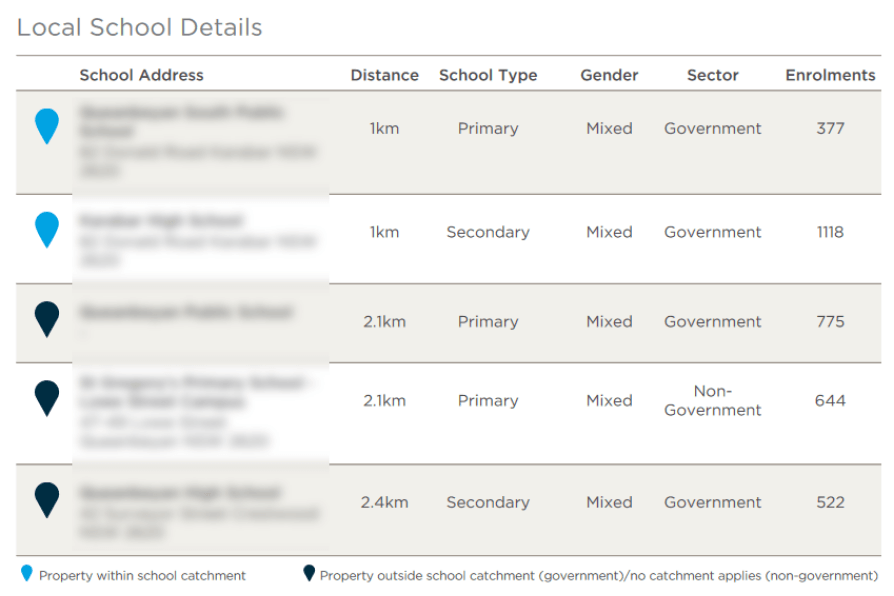
Depending on where you source a property report, it might contain details on local schools. A section like this will contain schools’ distance from the property, type, number of enrolments and sector type – government or non-government.
This section will help you determine whether your property is within a particular school catchment area. The information is also important because some buyers will pay a premium to be in the catchment zone of certain schools.Suburb Information
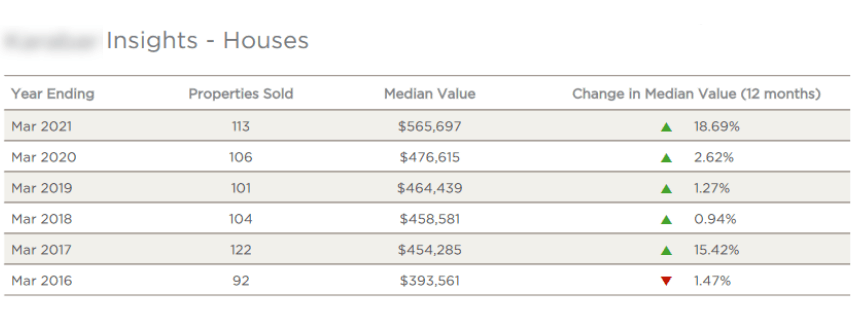
This section will help you compare current median house prices, capital growth trends, changes in median values, and how many properties sold in previous periods.
If you’re buying in an area with a lot of new developments then these sales may push up the median price. This can be misleading, as older properties will not have risen in price as much as the median price has increased. Also, growth in the past doesn’t indicate that prices will rise in the future. If you’d like to know more about what makes properties grow in value, then refer to our Home Buyers Course.Why Do You Need A Property Report?
Whether you’re thinking about buying or selling a house, a property report will put you in a stronger position to negotiate the property price. A property report:- Gives you an idea of how many times the property has sold and at what price.
- Tells you if the seller’s asking price is reasonable based on the comparable sales in the area if you’re selling.
- Helps you decide what offer to make if you’re buying.
- Helps you determine your loan-to-value ratio (LVR) and consequently how much you can borrow when applying for a home loan.
- Helps you adjust for a rising or falling market based on the price range from recent sales.
Can Banks Use This As A Valuation?
Some lenders will organise a ‘full bank valuation’ where a valuer will come and inspect the property. However if your application is low risk then the bank may just use an online valuation which often has the same estimated valuation as a property report. In other words, it is at the lender’s discretion to decide how they will assess the value of your property. Our team of mortgage brokers can assist by helping you to apply with a lender that will accept an electronic valuation.Get A Free Property Report
Home Loan Experts’ mortgage brokers can send you a list of property sales in most states for free. You may also be able to find comparable sales on real-estate websites. Check out easy-to-follow tips to estimate your property value by using comparable sales. To speak with one of our mortgage brokers, call 1300 889 743 or complete our free no-obligation assessment form.Frequently Asked Questions About Property Reports
Home Loan Experts’ mortgage brokers can help you generate a property report online but note that you should use them only as a guide. These reports are based on sources from recent sales in the area and may not always be accurate.
If there is no recent activity on comparable properties in the area, the information in the property report may be out of date. For example, a property report may not reflect a recent renovation to a property, making a huge difference in the price.
Perform your due diligence by factoring in the quality of the property and recent market changes.
No, house prices are publicly available. Land Registry Services in some states must collect property sales information, which is then analysed by services such as CoreLogic to prepare the property reports.
Some real estate agents withhold the sold price of houses they sell for the privacy of buyers and sellers when they report sales to CoreLogic / RP Data or other property data service providers. This is common in affluent areas such as the Eastern Suburbs of Sydney or Toorak in Melbourne.





